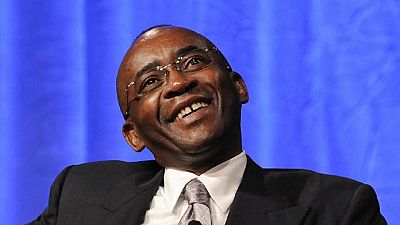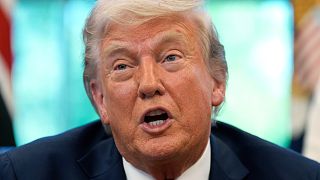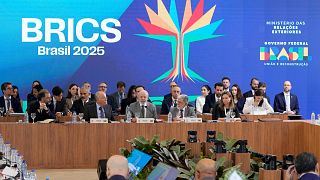Africa
Telecom tycoon Strive Masiyiwa has become Zimbabwe’s first billionaire.
According to a report by Forbes, Masiyiwa, 57, is now worth $1.7 billion, a fortune sufficient to rank him along other African billionaires like Nigeria’s Aliko Dangote.
The Forbes 2018 List of the Richest Africans confirmed that Dangote is still the richest man on the continent with a fortune of $12.2 billion. His investments in cement, oil and fertiliser production have paid off.
#Dangote sole #Africa-n on #Bloomberg ’2017 50 Most Influential People’ #Nigeria https://t.co/7VB0×7rqYD
— africanews (@africanews) December 10, 2017
Masiyiwa controls Econet Group, a Zimbabwe-listed mobile phone company that also has investments in financial services, insurance, e-commerce, renewable energy, education, Coca-Cola bottling, hospitality and payment gateway solutions.
Econet also has a Pay television outfit, Kwesé TV, which is already competing favorably across Africa with Naspers’ DSTV.
In July last year, Liquid Telecom, a subsidiary of Econet Group successfully raised $700 million in a bond and term loan financing package from international financiers.
The Forbes list of 23 shows that Africa’s richest individuals hail from 8 countries; 8 from South Africa, 6 from Egypt, 3 from Nigeria, 2 from Morocco and one list member each from Algeria, Angola, Tanzania and Zimbabwe.
The list has only two women; Isabel dos Santos, who is worth an estimated $2.7 billion and Nigeria’s Folorusho Alakija whose estimated $1.6 billion fortune lies in oil exploration firm Famfa Oil, which is partnered with Chevron and Petrobras on a lucrative offshore oil field.
The youngest billionaire in Africa hails from Tanzania. At age 42, Mohammed Dewjihas a net worth of $1.5 billion having inherited and expanded a textile and edible oils group from his father.
Forbes tracks the wealth of African billionaires who reside in Africa or have their primary businesses on the continent.
The net worths were calculated using stock prices and currency exchange rates from the close of business on Friday, January 5, 2018.
To value privately-held businesses, Forbes couples estimates of revenues or profits with prevailing price-to-sales or price-to-earnings ratios for similar public companies.














01:16
Africa mourns Pope Francis, a voice for peace and justice
01:14
ECOWAS Meets in Ghana to Tackle Member Withdrawals
Go to video
EU foreign ministers discuss Ukraine, Syria and EU-African relations in Luxembourg.
01:02
First payments made to white farmers affected by land reforms in Zimbabwe
01:58
Latin American leaders urge unity amid U.S. trade and migration tensions
Go to video
Paris hosts the 4th edition of African Cinema Days featuring Côte d'Ivoire